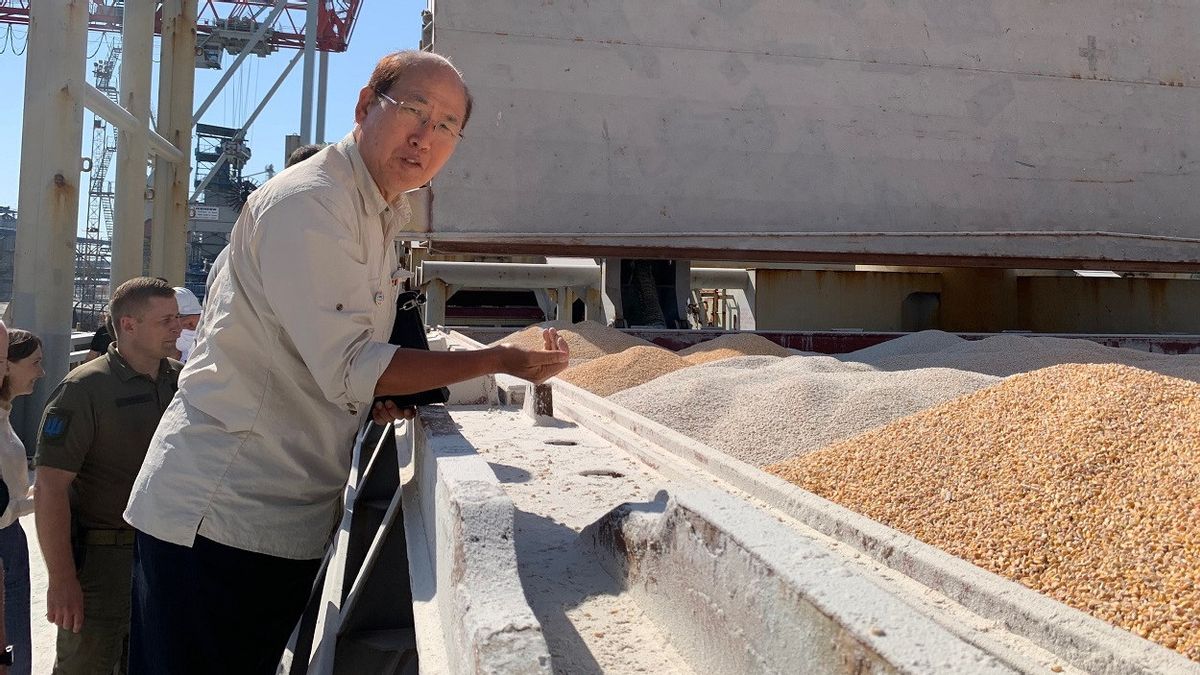Russia signaled on Thursday that if demand to increase exports of grains and fertilizers were not met, they would not extend the Black Sea seed deal, a deal that would allow the export of the same product from three Ukrainian ports, which will expire July 17.
Russia also made the same threats and demands in March. Moscow later agreed last week to renew its 60-day Black Sea export pact, which was initially brokered by the United Nations and Turkey last July with Russia and Ukraine, to try to defuse the global freight crisis exacerbated by the Moscow invasion in February 2022 into Ukraine.
Since March, Russia appears to have prioritized two specific demands: restarting pipelines to transport Russian ammonia to the Pivdenyi port in the Ukrainian Black Sea for export to the global market; and reconnecting Russian agricultural banks, known as Rosselkhozbank, to SWIFT's international payment network.
"If Rosselkhozbank is not connected to SWIFT and there is no progress in implementing other'systemic' issues that hinder our agricultural exports, then the 'Black Sea initiative' should also seek alternatives," the Russian Foreign Ministry said in a statement on Thursday.
The ministry recommends exporting land roads via Europe as an alternative, saying the route would be more expensive for Ukraine.
Rosselkhozbank was cut off from SWIFT by the European Union in June due to the Russian invasion. A EU spokesman said the bloc was not considering recovering Russian banks.
It is known, to help convince Russia to allow Ukraine to continue exporting Black Sea seeds, a three-year pact was also made last July, in which the United Nations agreed to help Moscow deliver its food and fertilizer.
Under the pact - and as an alternative to returning Rosselkhozbank to SWIFT - US bank JPMorgan Chase & Co. has processed several payments for Russian grain exports, sources told Reuters last month, and could process dozens more. However, Russia considers this unsuitable for the long term.
Meanwhile, the United Nations is working with the African Import-Export Bank (Afreximbank) to create a platform to help process Russian grain and fertilizer export transactions to Africa, a top UN trade official told Reuters on Wednesday.
The Black Sea grain agreement also allows safe ammonia exports. However, the pipeline Russia uses to pump up to 2.5 million tons of ammonia annually to be exported to Ukraine's Pivdennyi port from Togliati has not yet restarted.
A Ukrainian government source said last Friday Kyiv would consider allowing Russian ammonia to transit its territory for exports if the Black Sea seed deal was expanded to cover more Ukrainian ports and more extensive commodities.
Furthermore, the source also said the language of the Black Sea export deal did not cover Russia's ammonia transit across Ukraine.
"An ammonia stopover, as well as the delivery of new grains, although not literally mentioned, is implied in the logic of the agreement," the Russian Foreign Ministry said.
"Why does Ukrainian food continue to be successfully exported, and Russian ammonia does not move from the Yuzhny Port (Pivdennyi Port)?" asked the ministry
Russia's Foreign Ministry has also complained of "no progress" being made in other old demands, allowing the supply of agricultural machinery and spare parts to Russia, lifting insurance restrictions and access to ports for Russian ships and cargo, to unblocking accounts and financial activities of Russian fertilizer companies.
The English, Chinese, Japanese, Arabic, and French versions are automatically generated by the AI. So there may still be inaccuracies in translating, please always see Indonesian as our main language. (system supported by DigitalSiber.id)













